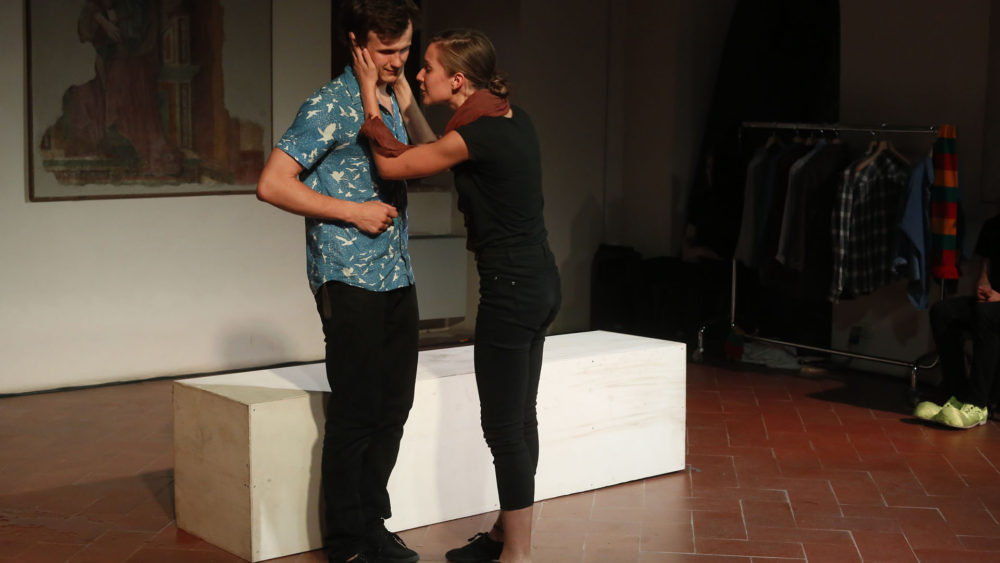Maria Cavali interviewed the young performer Iveta Raulynaitytė.
The Lithuanian society demonstrates a significant tendency towards homophobia and ethnic hatred. The artistic work (Un)Trapped Identity or Death? aims to destroy such identities.
 Tell us a little bit about yourself: what made you choose your profession?
Tell us a little bit about yourself: what made you choose your profession?
I just really wanted. I used to go to theater class in school and I had a great theater teacher N. Karpuškaitė Akelaitienė, which raised my personality. So I grew up being pretty loud – having my opinion and not being humble to say it. I saw theater as a perfect place for sharing my ideas and opinions about things in life. Also, I just liked being on stage and dreamed about professional acting training and discipline. And now I’m happy that I managed to stay and create in these studies of theater in LMTA guided by my professors J.Vaitkus and A.Gintautaitė.
Tell us about the “Identity or death” performance: was it your first international project?
Yes. It was my first project in all, because it was just the first year of acting studies too. I will not hide, the most attracting part of this project was the possibility to travel abroad and see the theater of other countries, to meet foreign students and young theater-makers and have workshops with different teachers. But the idea (“performing heritage”) was also thrilling. That not the project is giving you a theme on what to create, but you yourself rise up a theme that worries you the most. We chose to talk about stereotypes, phobias, and discrimination in Lithuanian society and called our theme “Identity or death”.
How did your friends or family react to the Playing identities – identity or death performance?
There the big thing of two generations begin. My friends were normal about it. It was an interesting, controversial theme that was worth talking about. Of course, a natural discussion here and there appeared. Namely about homosexuality. The major counterarguments appeared from religion, but all of my generation agreed that respect to another person and humanity is the most important, not race, gender of orientation. But my parents didn’t agree so easily. They didn’t forbid me from performing or something, but they gave me another point of view – their opinion. Namely about homosexuality. For the older generation, it is hard to accept these “new” ideas, being free from the Soviet Union just for the past 25 years (in the Soviet Union it was forbidden, in fact, “there were no” homosexuals). My parents said that it would be very hard for them to hear that I’m, for example, a homosexual, just because then they would not have grandchildren.
What have you learned during this project?
To communicate without words and that young energy in very powerful.
What was the most challenging part of the creative process?
That we had to take other roles besides acting. We sometimes directed our story, wrote the dramaturgy, had to find ways how to use our research material. But now I think it is the usual creation process. “Per aspera ad astra”.
What would you do differently if you would do it all over again?
Mabey defines my theme more specific. Because “Identity” is very wide and when the creation part comes, you can grow too large. And always have more initiative.
What do people in your circle think about homophobia?
As I said, the young generation begins to understand and take on the equality ideas. You like or dislike a person just based on his personality and ways of communication, not race, gender or orientation.
Do you think Lithuania is homophobic?
Mabey it’s not a phobia anymore? Yes, this theme is still controversial and a lot of people are scared to confess openly, but I think it’s the matter of education.



